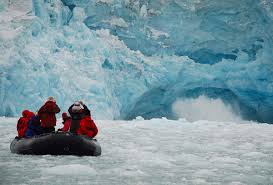If you’re searching for a paragraph on ecotourism, you’ve come to the right place.
Here are several paragraphs suitable for students from classes 6 to 12 that can help you express your thoughts effectively.
Ecotourism Paragraph For Class 9 and 10 (150 Words)
Ecotourism is a wonderful way to explore and protect our planet’s incredible natural beauty. It allows us to immerse ourselves in diverse landscapes, from majestic mountains to lush forests. Through ecotourism, we learn about the importance of preserving our environment and the unique animals that inhabit it. Educational trips to national parks provide opportunities to see wildlife like elephants, tigers, and exotic birds in their natural habitats. These experiences foster a sense of responsibility towards nature, encouraging us to become guardians of our planet. Moreover, ecotourism often involves community engagement, where we participate in projects aimed at protecting endangered species or organizing local clean-up drives. By participating in ecotourism activities, we not only gain knowledge but also become advocates for sustainability and environmental conservation. Ultimately, ecotourism combines adventure with education, helping us appreciate the wonders of nature while promoting its preservation.
Ecotourism Paragraph For SSC (200 Words)
Ecotourism involves traveling to natural areas such as forests and wildlife reserves to appreciate and learn about nature. This form of tourism attracts individuals who are interested in experiencing the beauty of landscapes, plants, animals, and cultural heritage. Ecotourism offers numerous benefits; it fosters an understanding of diverse cultures while promoting environmental awareness. One significant advantage of ecotourism is its ability to generate funds for conservation efforts and support local economies. By engaging in ecotourism activities, visitors contribute financially to the preservation of these natural areas while also creating positive interactions between tourists and local communities.
Ecotourism is thriving in various locations worldwide, including Komodo National Park in Indonesia and several countries in Central and South America like Brazil and Ecuador. In Bangladesh, Saint Martin’s Island is a popular destination for ecotourism due to its rich natural resources and unique tribal cultures. However, if not managed properly, ecotourism can have negative consequences, such as environmental degradation or disruption of local lifestyles. It is essential to address these potential issues through responsible tourism practices that prioritize environmental protection while ensuring that local communities benefit from tourism activities.
Ecotourism Paragraph For HSC (250 Words)
Ecotourism focuses on exploring beautiful natural environments while simultaneously supporting local communities and promoting conservation efforts. In recent years, there has been a shift from consumer-driven tourism towards experience-based travel that emphasizes cultural immersion and environmental appreciation. This trend benefits local economies by creating jobs in hospitality and guiding services while fostering a greater understanding of nature among visitors.
However, ecotourism can also present challenges if not properly managed. In some cases, local communities may not receive fair compensation or opportunities from tourism activities, leading to economic disparities. Additionally, some companies may falsely advertise themselves as eco-friendly without implementing sustainable practices—this can mislead tourists and harm the environment.
Another concern arises when tourists encroach upon wildlife habitats or attempt to interact with animals improperly. Such actions can disrupt ecosystems and endanger species. Successful examples of ecotourism management exist in Colombia at sites like “Caño Cristales,” where visitor numbers are regulated to minimize environmental impact. Conversely, places like Juanchaco face challenges due to lax regulations that allow pollution and habitat destruction.


